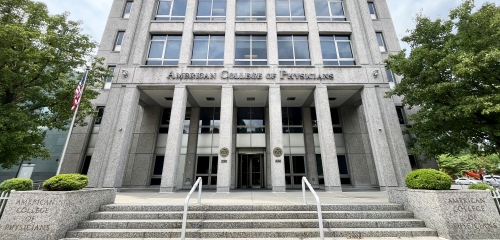New Migraine Treatment Guidelines Announced
The American College of Physicians (ACP) has just announced new guidelines for the treatment of migraine, which will interest doctors and specialists in the USA and around the world.

The guidelines are specifically for “acute” migraine, that is, an episodic migraine attack.
These kinds of recommendations do not, of course, replace your personal interactions with your doctor, who knows your condition and your medical history. However, announcements like this do help us to gauge which treatments might be worth “trying first”, or what might work for a wide variety of patients.
After a survey of the current scientific studies, the ACP has these two recommendations:
- “ACP recommends that clinicians add a triptan to a nonsteroidal anti-inflammatory drug to treat moderate to severe acute episodic migraine headache in outpatient settings for nonpregnant adults who do not respond adequately to a nonsteroidal anti-inflammatory drug (strong recommendation; moderate-certainty evidence).”
- “ACP suggests that clinicians add a triptan to acetaminophen to treat moderate to severe acute episodic migraine headache in outpatient settings for nonpregnant adults who do not respond adequately to acetaminophen (conditional recommendation; low-certainty evidence).”
It’s somewhat surprising that acetaminophen (paracetamol) is still such a strong recommendation. But note that the second item doesn’t have the strong evidence behind it that the first does.
Attention has largely gone away from triptans with the introduction of CGRP related medications for migraine. However, triptans have a strong track record. Guidelines like these are not likely to include newer medications simply because they can’t have the same long-term evidence behind them.
Remember that this advice may not be the best for you. But it may be worth a try, especially if you haven’t tried it before. If your doctor has tried increasing your dose of acetaminophen or an NSAID (still at a safe level), and you’re not experiencing relief, it may be time to add a triptan.
The ACP did suggest that other medications be tried if these don’t work.
Another important recommendation was to never put the full focus on a “pill”. There’s no doubt that medication is not saving us. The ACP adds:
Highlight the importance of lifestyle modifications with patients, including staying well hydrated, maintaining regular meals, securing sufficient and consistent sleep, engaging in regular physical activity (preferably moderate to intense aerobic exercise), managing stress with relaxation techniques or mindfulness practices, and, where applicable, pursuing weight loss for those who are overweight or obese. Also, explore modifiable migraine triggers or contributing factors during a detailed history.
Pharmacologic Treatments of Acute Episodic Migraine Headache in Outpatient Settings
It’s worth noting that some of these items are far more powerful than today’s medications in the long term.
To read more, especially if you’re a specialist, doctor or patient, go straight to the full report here.
For an article with a summary of the recommendations, see Updated migraine treatment guidelines ‘a long time coming’.
